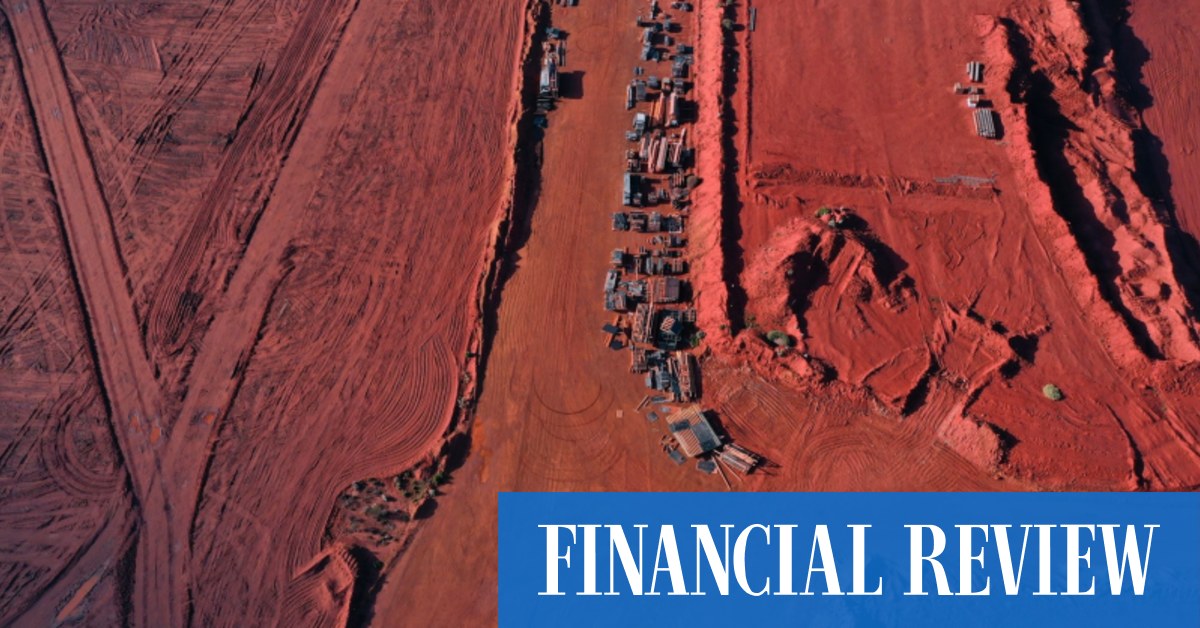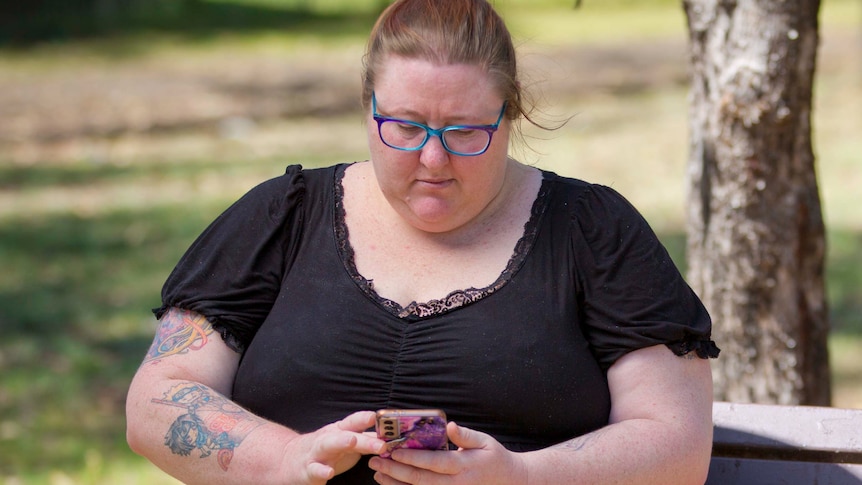These comments came amid growing hopes for an easing of China’s trade ban that has hit $20 billion in exports, in a discussion paper issued in November and during the first visit by a senior Chinese government official in six years. it was created.
China produces over 80% of the world’s separated rare earths and was the destination for 96% of Australia’s lithium last year. China also has more than 70% of her market share in processing and manufacturing other important minerals such as antimony, bismuth and tungsten.
Referring to Russia’s invasion of Ukraine, King points to “recent events” where “geopolitical tensions” have spilled over into “armed conflict” and supply chain concentration has proved unsound.
Addressing ambassadors to Japan, the United States, India and the Netherlands, King said Australia needs allies to finance a new generation of mines that could undermine China’s dominance in important minerals. Emphasize that you will
“We don’t have the capital to independently develop the country’s key mineral projects,” she says.
“Overseas investment from like-minded partners is essential to getting Australian projects off the ground, just as it was to get the iron ore and LNG industries off the ground decades ago.”
King made no mention of banning Chinese investment in local mines or supply contracts, but the reference to “like-minded” partners came after Treasury Secretary Jim Chalmers announced last year that China’s foreign investment comes after warning that it will be more aggressive to ensure it is aligned with the United States. national interest.
Dr. Chalmers addressed the threat in March, blocking a major mineral supplier to China from making a major investment in Australian rare earth exploration company Northern Minerals.
The government’s rhetoric reflects changes to Canada’s foreign investment policy in 2021, making it more difficult for “foreign-controlled state-owned enterprises” to invest in critical mineral projects. Last year, three Chinese investors in Canadian lithium mines were forced to sell their stakes.
“It’s very defiant”
Global Lithium is developing a mine in Western Australia to supply lithium to Chinese battery maker Suzhou TA.&Ultra clean technology. The Chinese battery maker also owns his 7.74% of his ASX-listed shares in Global Lithium.
Ron Mitchell, managing director of Global Lithium, said ahead of the minister’s speech, the government needs to remember that China is an important trading partner.
“I prefer carrots to sticks. I want the government to[incentivize businesses]to be more diversified in terms of who they contract with.” You can’t go to China. If you don’t, you’ll hit your head,” as opposed to the big stick. ‘ he said from the sidelines at the Future Facing Commodities conference in Singapore.
“I think it’s very reactionary and frankly inflammatory.
“China is still a very important trading partner. Let’s not forget that.”
Mitchell said the government could instead offer incentives such as tax cuts to miners who have trade and supply agreements with allies such as Japan, South Korea and the United States.
“Most companies want to have a diverse[sales]book, to be honest. not,” he said.
Chinese rare earths company Shenghe last year signed a preliminary agreement to purchase 60% of the rare earths VHM Limited plans to produce at its Goschen project in Victoria.
The deal is expected to close formally within three weeks, and VHM managing director Graham Howard said there would be few places to turn Australian rare earths into magnets if Chinese customers turned them down. rice field.
“Currently, there are limited alternatives for rare earths outside of China. In the next few years, if the world wants to buy refined rare earth elements, they will be processed by Chinese companies at some point in the supply chain,” he said. He said.
Federal taxpayers have already financed more than $1 billion for Iluka Resources to develop Australia’s first rare earth smelter in Enerva, Western Australia, and by 2025, the production of isolated rare earths such as neodymium and praseodymium will be Production should start. Both elements are used in the production of magnets for wind turbines, electric vehicles, drones.
“We welcome all forms of support”
Howard said VHM “welcomes any form of support” from Canberra, which has helped diversify the world’s rare earth industry.
“We have seen many officials in the US and eurozone commenting on building alternative supply chains, but so far they have not materialized,” he said.
“This is where we believe the quality, size and scale of the Goschen Project presents an opportunity in Australia and internationally. We welcome any form of support from
Prime Minister Anthony Albanese has set a goal of building more significant minerals processing and battery manufacturing capacity in Australian soils, and these ambitions will be a key part of the Critical Minerals Strategy to be announced later this year. prize.
“By building processing capacity and expanding value chains, we can combat national and regional supply risks and build competitive advantage,” King told Darwin Dialogue.
“By establishing new sources of critical minerals and playing a larger role in onshore processing, we can make these markets stronger, more efficient, resilient and more transparent.
“These projects will provide Australia with a processing base to further grow its manufacturing sector.”
Rare-earth exploration firm OD6 Metals, which owns a condominium near Esperance, Washington, said managing director Brett Hazelden was working on the missing link in the processing chain before allies began imposing restrictions on China’s participation. said you need to create a
Hazelden said most Australian rare earths sold to European customers pass through China as part of the manufacturing process.
“At the moment, there is really no one else we can sell to other than China, so some international coordination is needed,” he said.
“If we block the money coming in from China to do some of these jobs, or our ability to send materials to China…we need to work with the rest of the world to develop our industry.” So we are really an industry that can handle the entire supply chain, not just part of it.”
Australia’s Minerals Council said in a filing that the government should actively encourage foreign investment in local key mineral projects, but the foreign investment regime poses “national security risks”. must also be managed, he said.
The MCA said Australia needs to work with partners such as the United States, South Korea and Japan to “establish preferential policy links” that support investment and “reliable and safe supplies of minerals and their manufacture”. rice field.
Iluka’s managing director Tom O’Leary said the strategy was a “transformation opportunity” for Australia, with “sovereignty capabilities” in heavy rare earths such as dysprosium and terbium being of particular importance. I was.
“Australia must avoid past mistakes with commodity exports: leaving the added value to other countries,” he said.
government part
Mineral Resources managing director Chris Ellison previously said the government would offer streamlined approvals, immediate tax write-offs and low-cost long-term loans if it wanted to foster a vital local minerals and battery manufacturing sector. I was looking for it.
Tinwan is looking to develop a tin project in Tasmania, and chairman Chris Donaldson said the Albanian government could ease China’s control by taking part of the takeover from key mineral mines developed in the country. said.
“If the government funded it and said, ‘Okay, we’re going to give your concentrate supplier the rights first,’ it would make sense,” he said.
“This way you don’t cut off the China of the world, but at least you have the first right to access important minerals.”
Hazelden hopes the government’s critical minerals strategy will help streamline the approval process for the next wave of Australian mines.
Hazelden said he sought both state and federal recognition at a time when the federal government was reforming the Environmental Protection and Biodiversity Conservation Act and state governments were introducing new laws to protect Indigenous cultural heritage. He said a single process to clear would be particularly important.




